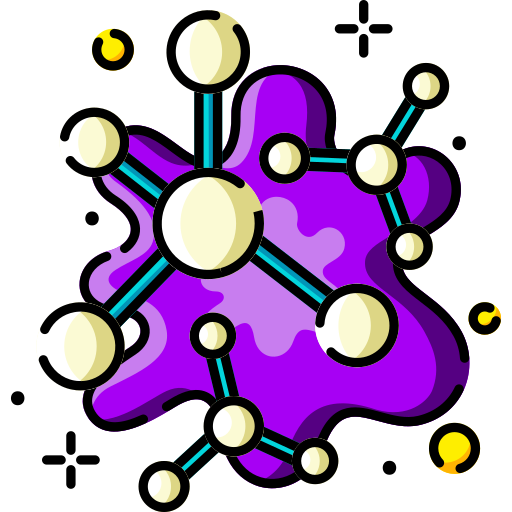The signs that you need hormone replacement therapy (HRT) can vary in men and women, especially during menopause. Women may notice hot flashes, mood swings, night sweats, weight gain, vaginal dryness, urinary issues, reduced sex drive, and brain fog as menopause begins. While not all women experience menopause symptoms, and others have them for only a short time, these issues can linger for many years in some cases.
For women not in menopause and men, the signs that you should start taking HRT can differ considerably. Depending on which hormone is out of balance and how it affects the body, the changes you experience can be physical, emotional, or cognitive.
As we delve into the most common issues people face with hormonal imbalance, we will also take a closer look at 5 signs people do not always think of first. We also provide information about the many benefits of HRT, when to expect the first results, how long hormone replacement therapy benefits last, and how to get a prescription.
What is HRT?
Hormone replacement therapy relieves the symptoms of a hormone deficiency by providing the body with a supplemental dosage of whatever hormone is lacking. Treatments include testosterone, human growth hormone (HGH), peptides, estrogen, progesterone, and other essential hormones.
Menopausal women may receive synthetic estrogen, bioidentical testosterone cream, or progesterone (progestin is the more dangerous synthetic version). Sometimes, HGH or peptides may be prescribed if growth hormone levels are too low to support healthy physiological functions.
Men and women over thirty may require peptides, testosterone, HGH, or other bioidentical hormones depending on their blood test and health assessment results.
What Are the Signs You Need Hormone Replacement Therapy?
Diagnosing hormone deficiency requires looking closely at the symptoms a person reports. There are many signs you need HRT, including weight gain, muscle loss, joint pains, cognitive decline, forgetfulness, fatigue, high cholesterol, aging skin, and frequent illness.
Hot flashes and night sweats can affect men with low testosterone levels just as much as they impact menopausal women. Males can have erectile dysfunction, while women may notice decreased vaginal lubrication resulting in painful intercourse. These signs can vary significantly from one person to another depending on which hormone receptor cells in the body do not receive enough signaling to engage their actions.
5 other signs you need hormone replacement therapy include:
Mood swings
Depression, anxiety, irritability, and stress are signs that you might suffer from low hormone levels. People who do not respond to traditional anti-depressant treatment should undergo testing for hormone deficiency.
Hair loss
Both hair thinning and loss are indicative of low testosterone and HGH levels. Testosterone imbalance is often associated with increased dihydrotestosterone (DHT), affecting hair follicles. Stress is also a factor in hair loss because it can also lower HGH and testosterone levels. Some men and women report improved hair growth with HRT, including testosterone replacement therapy (TRT).
Urinary problems
Low estrogen or testosterone in women can lead to changes in bladder tissue (thinning), vaginal elasticity, and muscle support. Men with low testosterone may suffer from urinary incontinence or prostate enlargement, which can influence urinary dysfunction.
Low sex drive
Libido decline is indicative of hormonal changes, as testosterone, HGH, and estrogen play a role in sexual desire. Because low HGH and testosterone levels increase cortisol production, stress can also factor in libido decline.

Insomnia
Sleep disturbances occur as HGH and testosterone levels decline, causing a surge in the production of the hormone cortisol. Testosterone and HGH oppose cortisol (stress hormone) levels. Cortisol interferes with sleep, which is crucial for HGH and testosterone production. It is a vicious cycle that continues without HRT.
Benefits of Hormone Replacement Therapy
Most of the benefits of hormone replacement therapy apply to men and women. Better body composition, health, focus, memory, and sex drive are universal. TRT has been shown to provide positive bone mineral density and muscle mass changes to all adults.
Some male and female-specific benefits include:
- Benefits of HRT for Men
- Improved erectile functions
- Decreased symptoms of prostate enlargement
- Improved testicular size
- Decreased breast tissue growth (gynecomastia)
- Improved sperm count
- Benefits of HRT for Women
- Improved vaginal wall thickness
- Better bladder control
- Increased vaginal lubrication
- More pleasurable intercourse
- Improved fertility
When Will You See the First Results?
While it can take a few months to notice the widespread benefits of HRT, many people report gradual improvements within the first one to two weeks. Early positive changes include better sleep, energy, and an improved sense of humor.
By the end of one month, many people report improved feelings of sexual desire and better focus. Hormone replacement is highly individualized, so do not worry if you do not notice changes right away. Communicate with your clinician to discuss your situation.
How Long Does HRT Last?
As with when to see the first results, how long HRT lasts is highly subjective. Some people will find that their benefits last long after stopping hormone replacement therapy. Others might notice a gradual decline in their feelings of well-being as some symptoms begin to return.
Positive lifestyle changes, such as consuming a healthy diet, exercising, getting enough sleep, and avoiding alcohol, drugs, and smoking, can increase the longevity of your results.
The other option for some people is to continue low-dose HRT indefinitely if they desire.
How to Get HRT Prescribed
Contacting a hormone replacement specialist is the best way to get HRT prescribed. You will undergo a physical examination to rule out other issues that could be the cause of your symptoms. Blood analysis that measures hormones and different levels will verify a hormone deficiency or imbalance. The doctor will also review your medical history to determine if underlying issues interfere with hormone production.


